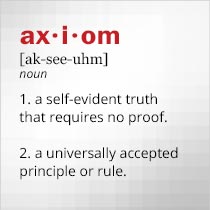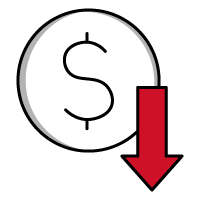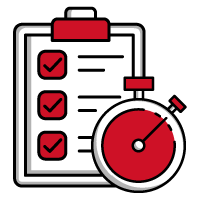Get a Charge Out of Device Capacitance-Voltage Testing
September 03, 2019
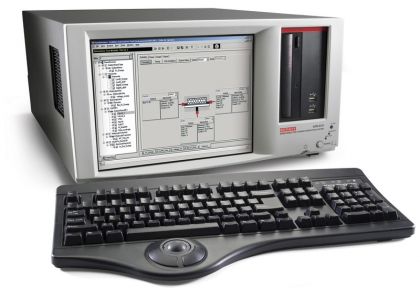 |
Transistors and integrated circuits (ICs) make many of our modern electronic “toys,” such as cellular telephones and computers, possible. But before it is possible to reliably design supporting circuits for new semiconductor devices, they must be accurately tested to better understand their electrical characteristics. Last month’s blog looked at the ways in which current changed with changing voltage. As a follow-up, this blog will explore capacitance as a function of applied voltage and how capacitance-voltage (C-V) measurements can greatly assist the modeling and design of circuits with semiconductor devices.
Semiconductor devices come in many forms, including many types of transistors, diodes, and even photovoltaic devices and Micro-Electrical-Mechanical Systems(MEMS) devices. C-V testing provides a nondestructive method of measuring the barrier capacitance of different semiconductor junctions and materials, including for metal-oxide-semiconductor (MOS) and metal-semiconductor junctions. Such measurements provide insights into how to enhance a semiconductor process and optimize device performance. They are usually performed at relatively low bias and test voltages and currents, although the growing need for more power from small devices and packages is boosting the availability of C-V testers with higher power capabilities.
C-V device testing involves measuring the current through a device under test (DUT) and the voltage across its junction and using the amplitude of the impedance (Z) and the phase angle between the current and the voltage. Measurements can be performed with instrumentation as essential as an AC source connected to an AC voltmeter and an AC ammeter. Such AC architectures are commonly used to measure device C-V characteristics although they can require precise calculations when the frequency under test is not the same as the operating frequency of the DUT. Modern low-frequency AC capacitance testers are often part of multifunction testers with many capabilities, including I-V measurements, often in modular form for flexibility and upgradeability. In addition to instruments that perform low-frequency C-V measurements, some testers determine C-V plots by means of high-frequency radio-frequency (RF) measurements, using precisely constructed transmission lines and vector network analysis to determine the impedance and phase for different test currents and voltages.
C-V measurements are often performed on a DUT which is part of a semiconductor wafer, requiring the use of a pair of well-grounded probes. In fact, the two probe head bodies must be connected to make a good ground connection. Probes are connected to the test equipment by means of coaxial cable assemblies with remote sense leads and precisely controlled lengths, because of the need to measure phase. This sensitivity to phase in the cables increases as a function of test frequency, with the need for coaxial cables with precise phase lengths with RF-based measurement equipment.
When specifying test equipment for semiconductor device C-V measurements, several performance parameters can be used for comparison purposes, including the capacitance measurement range of the test equipment and the capacitance measurement resolution and accuracy for different values of measured capacitance. When characterizing higher-frequency and higher-power semiconductor devices for their C-V behavior, the maximum test frequencies and voltages of the C-V measurement equipment under consideration may be concerns in order to specify test equipment that is closest to the standard operating conditions of a DUT. Since measurement accuracy is a function of frequency, the accuracy of test equipment at a test frequency is also a consideration when selecting C-V test gear for an application, especially when measurements are to be made at higher frequencies.
Check Out C-V Test Tools
Reliable test equipment for performing semiconductor device C-V measurements can be as basic as instruments based on an inductance (L), capacitance (C), resistance (R) measuring configuration or LCR meter. The Keithley 590 C-V Analyzer follows that basic LCR measurement formula over a wide capacitance measurement range with high accuracy. The instrument provides capacitance measurement ranges from 2 pF (with 0.1-fF resolution) to 20 nF (with 1-pF resolution) with test voltage ranges of 100 kHz and 1 MHz. Of course, this instrument does much more than a simple LCR meter, allowing cable phase compensation settings to be stored in nonvolatile memory for quick calibration routines.
As noted in last month’s blog, the Keithley 4200-SCS Semiconductor Characterization System is an all-purpose semiconductor tester capable of C-V measurements when equipped with a model 4210-CVU capacitance-voltage unit (CVU). With that module, the instrument can perform semiconductor device and material C-V testing at frequencies from 1 kHz to 10 MHz and standard DC bias voltages of ±30 V (60 V differential voltage). The DC bias voltage can be increased to ±210 V (differential voltage of 420 V) with an additional source-measure-unit (SMU) module. With the proper modules, the 4200-SCS can measure current from 0.1 fA to 1 A and voltage from 1 μV to 210 V. With the 4210-CVU, the tester can measure capacitances from 10 fF to 1 μF and even make capacitance-current (C-I) measurements as a function of frequency.
When higher-voltage C-V device characterization is in order, the Keysight B1505A Power Device Analyzer and Curve Tracer is capable of testing at bias voltages to 3 kV. Well suited for C-V measurements on high-power on-wafer and packaged semiconductors, the instrument can operate at device test levels to 1500 A and 10 kV. Based on a modular format for ease of upgrading and calibration, the Keysight B1505A can be equipped with the test modules needed for achieving 0.035-fF capacitance measurement resolution at test frequencies from 1 kHz to 5 MHz with 1 mHz tuning resolution. For example, the Keysight B2902A two-channel SMU provides as much as 210 V and 3.3 A DC current (10.5 A pulsed current) with 100-nV and 100-fA tuning resolution.
The modular Keysight B1505A includes GPIB, USB, and LAN control interfaces along with a VGA video output port for ease of interconnections. This RF system functions at a characteristic Impedance of 50 ? and achieves nominal accuracy of ±0.8%. The tester even automatically identifies whether 1.5- or 3.0-m cables have been connected to include cable phase and impedance with probe C-V measurements.
This is a brief sampling of some of the practical measurement tools for evaluating the C-V characteristics of different semiconductor structures and processes. By comparing measured results to the expectations from computer-aided-engineering (CAE) modeling software, semiconductor structures can be refined, for example, for higher efficiency, and semiconductor processes can be optimized for enhanced yields at a target capacitance and operating frequency. C-V measurements are invaluable as part of any semiconductor device development program, especially when the properties of some semiconductor materials, such as gallium nitride (GaN) or silicon carbide (SiC), may yet be unfamiliar.
To rent or purchase these or other test equipment, please visit Axiom Test Equipment’s website at www.axiomtest.com to view our inventory. If you would like help selecting the right equipment for your project, contact Axiom Test Equipment’s sales department at sales@axiomtest.com, or by calling an Axiom sales representative at 760-806-6600.
Back to BLOG


